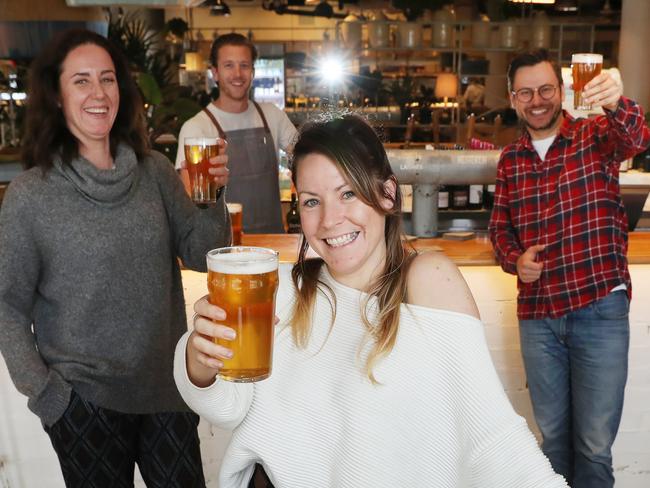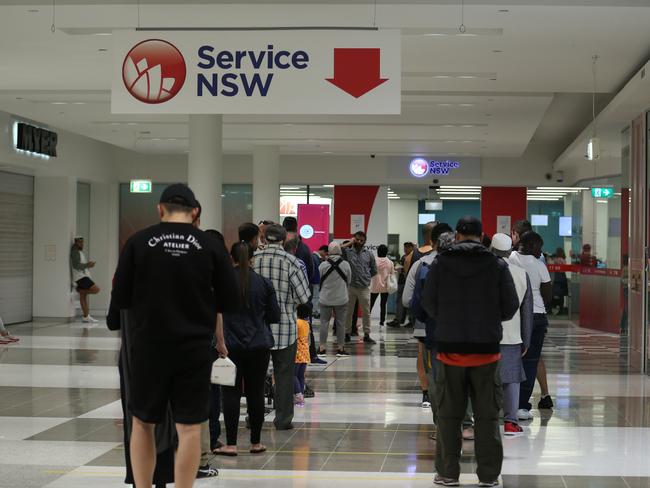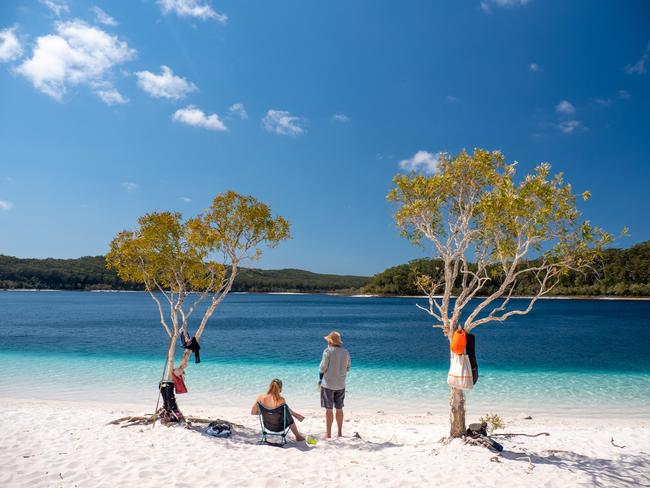Alan Jones: Fear of COVID-19 a much bigger problem than the virus itself
It is now plain to see that governments reacted to the wrong set of experts in imposing lockdowns — but there is a larger scientific consensus building against them, writes Alan Jones.
Opinion
Don't miss out on the headlines from Opinion. Followed categories will be added to My News.
- Global virus outbreak spawns a pandemic of Karens
- State political games put Australia’s recovery at risk
The public cry to ease the lockdowns and end the closed borders between states has become a deafening roar.
But the blunt truth is, you can’t talk easing lockdowns without confronting the folly of social distancing.
It is time that Australians were treated as adults by politicians and public servants who have not forfeited a single cent since the lockdown began.

It is central to the elusive spirit of Australian independence, not dependence, that Australians invariably seek to be the architects of their own destiny.
Australians are grown up enough to be able to determine what level of risk they are comfortable with.
We have seen a massive campaign of alarmism and hysteria.
Every new “case” is breathlessly reported to the extent that people believe that if they test positive to the virus, the next thing they must do is buy a box of nails, a couple of planks of wood, and get the coffin ready.
MORE FROM ALAN JONES
Coronavirus alarmism has put us in a big, black hole
This could prove the greatest, most costly mistake in our history
Jobs lost, opportunities destroyed and no herd immunity
The World Health Organisation releases figures, daily, telling us that 98 per cent of cases are mild.
Today, in a world of 7.7 billion people, 53,000 cases are critical; in Australia, five.
As Steve Waterson wrote superbly at the weekend, in 1957 the Asian flu claimed 120,000
The current US death toll is 99,012.
Of all the cases to return a positive test in America, 98.5 per cent are mild.
The American population is 328 million; the serious cases are 17,155.
Bjorn Lomborg, President of the Copenhagen Consensus Centre, and visiting Fellow at the Hoover Institution at Stanford University, wrote recently of Malawi, where a cost-benefit analysis has been done on coronavirus policies.
He wrote, “While a COVID-19 epidemic inevitably creates an economic cost, moderate social distancing will have a somewhat higher economic impact. The total economic loss for Malawi runs at $US6.7 billion, almost equivalent to an entire year of GDP … The new analysis shows that in Malawi, each dollar spent on moderate social distancing to tackle COVID-19 will deliver just 4 cents of social benefits.”

Yet we have been fed this diet that government has our best interests at heart and nothing must be done to jeopardise our health.
But it is incalculable what damage is being done by the new silent epidemic – businesses going under, people going broke, jobs vanishing with all the associated personal and mental dislocation and trauma.
Dr Sucharit Bhakdi, a Microbiologist and Infectious Disease Epidemiologist, formerly of Mainz University, Germany got it right when he said, “All these measures are leading to self-destruction and collective suicide based on nothing but a spook.”
Dr Joel Kettner, Professor of Community Health Sciences and Surgery at Manitoba University in Canada has argued, “I have seen pandemics, one every year. It’s called influenza and other respiratory illness viruses. I have never seen this reaction and I’m trying to understand why.”

Dr David Katz, the founding Director of the Yale University Prevention Research Centre: “I’m deeply concerned that the social, economic and public health consequences of this near- total meltdown of normal life will be long lasting and calamitous, possibly graver than the direct toll of the virus itself … the unemployment, impoverishment and despair likely to result will be public health scourges of the first order”.
Frank Ulrich Montgomery, a radiologist and a former President of the German Medical Association: “I’m not a fan of lockdown. Anyone who imposes something like this must also say when and how to pick it up again”.
And then Professor John Ioannidis, the Professor of Medicine and Professor of Epidemiology and Population Health at the Stanford University School of Medicine argues, “If we had not known about a new virus out there, and had not checked individuals with PCR tests, the number of total deaths due to “influenza like illness” would not seem unusual this year. At most, we might have casually noted that flu this season seems to be a bit worse than average. But the media coverage would have been less than for an NBA game between the two most indifferent teams … … we need to prepare but not overreact.”
Are we seriously being told that the Opera House won’t open until the virus has dissipated?
Do Broadway and the West End become theatrical morgues?
Do footballers and cricketers play to empty stadiums? If not, when won’t they?
And now, today, we have increased security at public transport hot spots to enforce social distancing.
Only 12 people on a bus, 32 in a train carriage.
The nanny state has gone mad.
And while it has, Queensland Tourism is losing $53 million a day.
As Yoram Lass, the former Director of Israel’s Health Ministry recently argued, “The draconian measures are of biblical proportions. Hundreds of millions of people are suffering, in developing countries many will die from starvation. In developed countries, many will die from unemployment. Unemployment is mortality … more people will die from the measures than from the virus. And the people who die from the measures are the breadwinners. They are younger … what has been done is not proportionate, but people are afraid. People are brainwashed. They don’t listen to the data and that includes governments”.

As Steve Waterson wrote, “The mantra parroted by our federal leaders, Premiers and the medical bureaucrats they hide behind is that they will do nothing that threatens their citizens’ health. That sounds like a noble principle. But they are solving the wrong problem. We are no longer facing a health crisis, we are facing economic carnage.”
It is time for Australia to wake up before it is too late.
Listen to the Alan Jones Breakfast Program on 2GB weekdays from 5.30am-9am

